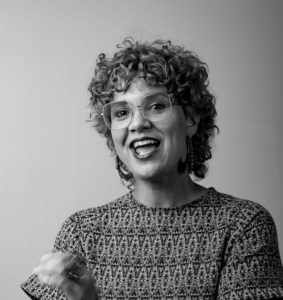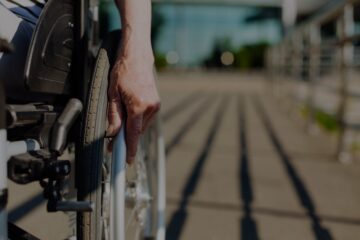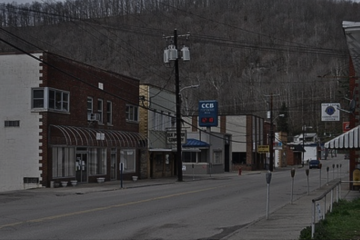by Crystal Good, writing for the “When All Are Counted” Project
Sometimes, you have to call a thing what it is.
As a Black woman in West Virginia’s policy community, I’ve had a front-row seat to progressive, white-led organizations whose leaders dedicate time and resources to supporting Black issues. Still, they hurry off the stage when confronted with real moments to be more than performative.
I have been working and living in this space for a long time. It has always been my self-appointed responsibility to inform newly introduced Black people in our state’s “progressive” non-profit coalition that some of the organizations designed to address the injustices and hardships that we, as marginalized people, face, might prioritize grant funding and photo-opts over actually making progress to “eliminate racism.”
However, I have realized that I need to step away from this warning role, not because I want to see anyone harmed but because it is too painful to keep reminding myself. The last ten years of being the “only” Black woman in many spaces has affected my health.
I have dedicated a significant amount of time seeking therapy and attending support groups to help me cope with the tremendous hypocrisy I see in my community. It’s disheartening to witness many individuals standing as allies of those who have been accused of perpetrating racial injustice. On the other hand, I’m fortunate to have found culturally sensitive healthcare professionals who have acknowledged the CDC’s statement declaring racism a serious public health threat and address disparities from a race equity lens.
The physiological impacts of chronic stress burden Black women. We are likely to suffer from the consequences of social stress resulting from the interaction between racial and gender discrimination compounded by health and socioeconomic disparity. This contributes to the manifestation of diabetes, cardiovascular diseases, obesity, high blood pressure, and cancers.
The research on Black women’s perspectives about stress and the intersection of race and gender in their stress experience is limited. That’s why I am offering this commentary. Individuals such as myself, who have closely witnessed the situation, bear the responsibility of telling and documenting while the politicians demand that we remain silent or dismiss our realities and medical evidence.
It’s also the same, separate but equally dismissal when marginalized groups question the current state of advocacy groups that claim to represent us but lack diversity.
It’s the expectation that all organizations leaning left will pull their collective power together to amplify issues, elevate candidates, etc.
But what if you’re a dissenting voice?
The West Virginia nonprofit sector, like its government systems and legislature, is mostly run by white people. Few of them are willing to meet the new tensions on these old systems with open minds and shared power. New advocates come to these organizations with fresh ideas, expecting inviting, safe spaces—maybe even an equitable table. Instead, they’re shooed quietly out a side door before anyone notices.
Those sidelined voices not welcome in these organizations have often lived and breathed the inequities that the organizations say they stand for. I am a light-skinned Black woman, and that makes some white people more comfortable. Unfortunately, I’ve been a go-to for questions about racism or the “you know I’m not a racist” stories justifying some bad behavior rather than just taking responsibility.
I know we need more advocates in our state to address the systemic racism that creates health disparities for Black mothers because I have lived it. These aren’t just talking points; they’re my experiences. Shouldn’t that entitle me to share my voice on their soapbox?
Why in the world is it even their soapbox in the first place?
Advocating for change and inclusivity within these organizations is both frustrating and draining. It takes a toll on my mental and physical health. Despite this, it’s important to hold these organizations accountable for their internal issues with racism and harm. Unfortunately, my efforts to bring attention to these problems and demand change are frequently dismissed and overlooked, and I’ve been told I have a personal problem more than once.
And I do have a personal problem with racism.
West Virginia is a tough place to work on progressive issues, especially ones that speak to and center racism. I publish a newspaper, Black By God, to center Black voices in Appalachia and have pulled stories because Black communities feared if they told the truth about racism, their sewer lines might not get repaired.
There is no safe space.
I am fatigued.
Listen: When Pastor Watts stands before the West Virginia Board of Education to talk about suspension rates, or Haadiza Ogwude writes about the scarcity of Black mental health professionals, or the WVU School of Public Health holds public meetings to discuss how social stressors adversely affect the health of Black West Virginians, there’s always that part of me that wants to organize and advocate. Because nestled in this data, there’s a clear, common theme: Racism. It’s right there, in plain sight.
But what organization—what allies—are willing to share their power?
I have found my power in words and social platforms. But there’s no space for me on the stages in our white-led nonprofit community. That’s the thing. We fight systemic racism in our health care system, but we look away from the very thing in our own progressive community. If we’re ever going to get this done, isn’t that where we have to start?




0 Comments